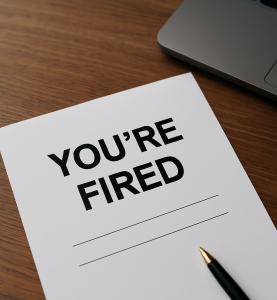Below, he speaks about practicing as an independent expert witness and how he devises a loss of earning report in civil litigation cases.
You have practised as an independent expert witness employment analyst and career profiler since 1989; how have you seen the field change over your time of working?
It has changed considerably. When I first started out as an expert, I found the sector was dominated by two practices, although they have since faded and overtaken by my own. As in any business there will be retirements, new entrants and changes, all of which keeps me determined to embrace change, continue to disrupt and constantly seek improvements. The personal injury field has also changed beyond recognition, mainly driven by changes in the law, primarily aimed at containing costs which means the can has been kicked down the road to expert witnesses.
We must be alive to this and react positively in a way to meet the demands placed upon us. To this end we devised a Jackson compliant Form H spreadsheet total estimate of costs and created a portal on our web site, CaseTracker, allowing clients to track the progress of their instructions and download the completed report. An incidental benefit is that CaseTracker has completely eliminated the outflow of paper from our office, thus helping us achieve our environmental objectives.
To be recognised as a reputable and professional business, it is essential we operate to very high standards which are normally associated with much larger businesses. TGA is accredited to the international quality standards ISO 9001 and 14001 (management and environment) and our team works to prescribed service levels and KPIs. We have been recognised by the personal injury legal industry as leading suppliers of services on seven occasions, six times winning the prestigious national Personal Injury Awards (between 2012 and 2018) and, in 2019, by Modern Law Awards.
We must also take into account the evidence of the claimant, either through witness statements or the results of interview.
What evidence do you usually need to provide when working on settlement negotiations in personal injury / clinical negligence cases?
Firstly, I should make it clear we do not work on settlement negotiations, which is the remit of our instructing solicitors. The evidence we need in order to prepare a report on loss of earnings is, firstly, a very clear letter of instruction, evidence of employment history and earnings, education where appropriate and also relevant expert medical reports, as employment experts must be led by the medical evidence.
We must also take into account the evidence of the claimant, either through witness statements or the results of interview. My team is extremely skilled at interviewing.
What labour market information does is fill in the gaps.
Do labour market conditions impact the conclusion you may come to? If so, how?
In most cases, yes. In a ‘but for the accident/negligence’ scenario, depending on the complexity of the case it may be the case that labour market conditions can assist the claimant’s case. For example, if investigations showed at the time of the accident there was a high demand for this specific occupation, it would re-enforce the claim as opposed to there being more candidates than jobs which would weaken the case.
What labour market information does is fill in the gaps. It assists in providing a snapshot as to the claimant’s potential place within it at any given time. However, it does not provide sufficient focus in my view where, for example, a claimant lives in a remote rural location.
All reports are centred on the claimant as without him/her the case would not be running.
Can you share more about how you devise a loss of earning report in civil litigation cases? What challenges may arise for you?
This is a very good question. At TGA we approach cases entirely differently to that of our competitors. In effect, we write a narrative in occupational terms: where the claimant has come from (employment history), where they are now (as a result of the accident, referencing medical reports) and our assessment given the foregoing as to what type of work and earnings they might achieve.
All reports are centred on the claimant as without him/her the case would not be running. Like any book, a report has to have a beginning, middle and end. That means identifying the strengths and weaknesses in the claimant’s employment history followed by extensive research which may support or undermine the claim.
As independent and impartial experts, it is vital we are as scrupulously fair as can be in our reporting and deliver a range of opinion where possible, although there are times when more focus is required. This depends very much on the occupation for, as employment experts, we have to be all things to all people, reporting on every conceivable occupation, some of which are straightforward for e.g., a carpenter whereas others are not as straightforward, such as an investment banker.
It also depends on the instructions and evidence received.
A carpenter is unlikely to progress through their career other than perhaps to supervise if working on 1st fix on a building site, but not if they are self-employed. An investment banker on the other hand requires forensic investigation due to the complexity of the space within which they work and the size of potential earnings, often counted in the millions per year.
It also depends on the instructions and evidence received. I am occasionally asked whether I would write the same report on behalf of the claimant as I would for the defendant and the answer is yes, in an ideal world. However, a solicitor may send limited evidence and the expert will not know if there is more. In my experience, it also the case a claimant can respond differently depending for whom the expert is acting. Simply put, when acting for the claimant the expert may be perceived as friendly and thus the claimant is disposed to open up more, whereas when acting for the defendant, the claimant may clam up to the expert or not provide the fullest detail.
Therefore, the possibility that a report would differ in its conclusions always exists. This does not imply partiality, but absent information has the potential for distortion.
However, were it to be a jointly instructed report where the parties agree to the evidence to be given to the expert, added to which the claimant knows the expert is acting for both, it is inevitable the report would be as it is intended, fully informed and completely impartial.
However, clients and experts both recognise the importance of being independent and working against a client of long standing has its own benefits in that an expert cannot and should not be seen as a claimant or defendant only expert.
All cases of people who have suffered injury are sad and my colleagues and I have experienced moments of reflection upon returning home following a particularly stressful interview. However, we have not only an overriding duty to the court, but to our instructing solicitors and, not least, the claimant to report impartially and independently, no matter how we sympathetic we may feel.
Other challenges are generally a matter of investigation and thank goodness for the internet, which was not available when I first started. I had to rely on published documents and contacts who might point me in the right direction. Life is so much easier now as I cannot think of anything I haven’t searched for and not found the answer or signpost to where I wanted to be.
The primary challenge is continuing to attract and retain business. It is a matter of fact experts rely on solicitors to instruct them and it is difficult to come to terms, in a commercial sense, why a favoured client for whom you have delivered consistently good work for a number of years instructs another expert, even though as a practice/individual we are accepted on to their preferred supplier list.
However, clients and experts both recognise the importance of being independent and working against a client of long standing has its own benefits in that an expert cannot and should not be seen as a claimant or defendant only expert.
Alongside your work as an Expert, you have raised awareness of discrimination against the disabled by employers and helped pave the way for new employment legislation; can you share more about this? What impact has this had?
When I was President of the Institute of Employment Consultants I created, personally paid for, launched and coordinated a campaign, Priority 2000, to encourage employment agencies to place just one disabled person a year each. I was delighted that at the end of the campaign over 1,700 people with disabilities had moved into employment.
As a result of this initiative I became an ad hoc adviser to the Conservative Government of the time on issues surrounding disabled people and worked closely with Alistair Burt, Minister for Disabled. My campaigning and initiatives greatly raised awareness of discrimination towards the disabled by employers and helped pave the way for new employment legislation including amendments to the Disability Discrimination Act 2005, which was replaced by the Equality Act 2010. It was for this initiative that I received the OBE and the British Citizen’s Award in 2016.
Trevor Gilbert
Chairman
Trevor Gilbert & Associates
Trevor Gilbert OBE is the Chairman of the eponymous Trevor Gilbert & Associates, widely regarded as the UK’s leading employment expert witness practice. He has been involved in recruitment since 1972 through his consultancy, The TRG Group, and has practiced as an expert for 30 years.
This year Trevor’s practice was short-listed for the Queen’s Award for Enterprise, although ultimately unsuccessful it was nevertheless an achievement in itself, and he is nominated for the Shaw Trust’s 100 most influential people with a disability/impairment in the UK.




















